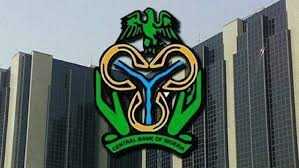The Organised Private Sector (OPS) and the Nigeria Labour Congress (NLC) have strongly opposed calls for the introduction of higher-value currency notes, warning that the move could worsen inflation, reverse progress made under Nigeria’s cashless policy, and further weaken the naira.
Their reaction followed a report by Quartus Economics urging the Central Bank of Nigeria (CBN) to issue N10,000 and N20,000 notes to restore the naira’s portability and reduce the cost of cash transactions. The report, titled “Is Africa’s Eagle Stuck or Soaring Back to Life?”, argued that the N1,000 note, the country’s highest denomination, had become “practically obsolete in terms of purchasing power.”
Business leaders and labour unions, however, dismissed the proposal as ill-timed and economically counterproductive, warning that it would deepen existing hardship for small business owners and low-income earners.
The National Vice President of the Nigerian Association of Small-Scale Industrialists (NASSI), Segun Kuti-George, described the idea as “elitist,” saying it would only favour the rich while undermining Nigeria’s drive toward a digital economy.
“Such a policy could worsen inflationary pressures. The mere consideration of these denominations reflects underlying inflationary trends, and their introduction would likely escalate them further,” he said. “If at all necessary, a N2,000 note could suffice, but anything beyond that is neither practical nor economically sound for our current realities.”
He added that higher denominations would make it easier for wealthy individuals to hoard cash, while discouraging the use of electronic payment systems. “At a time when the nation is deliberately encouraging reduced cash transactions, issuing higher denominations would only take us backwards,” he said.
The Director-General of the Nigerian Association of Small and Medium Enterprises (NASME), Eke Ubiji, also rejected the proposal, warning that it could plunge the economy into a deeper crisis. He argued that small businesses were already struggling with rising costs, weak purchasing power, and declining consumer demand.
“It’s a very bogus thought. The planners of that idea should think properly before they launch it; otherwise, they will put the economy into a deeper crisis,” Ubiji said. “Our economy is already in a dilemma caused by policies like fuel subsidy removal. Introducing higher notes will only compound the crisis.”
Echoing similar concerns, the President of the Association of Small Business Owners of Nigeria (ASBON), Dr. Femi Egbesola, said that printing higher-value notes would derail Nigeria’s cashless policy and drive inflation. “Globally, economies are moving towards digital payment systems, not printing bigger bills,” he said. “What should matter is improving the value of the naira, not printing higher denominations.”
Egbesola urged the CBN to focus instead on monetary stability, productivity, and financial inclusion. “Our direction should be to strengthen the currency, not to compensate for its weakness,” he added.
While the Chief Executive Officer of the Centre for the Promotion of Private Enterprise (CPPE), Dr. Muda Yusuf, acknowledged that higher denominations could reduce the cost of cash handling, he warned that such a policy would also carry significant risks.
“On the positive side, it could make currency management more efficient for the CBN and banks,” Yusuf said. “However, it would also increase the risk of counterfeiting and encourage more cash-based transactions. A moderate option like a N5,000 note might be a better balance.”
The Nigeria Labour Congress (NLC) described the proposal as “a recycled economic error,” insisting that it would neither strengthen the naira nor ease inflation. NLC Assistant Secretary-General Chris Onyeka said, “Printing higher denominations won’t stop the naira from falling; it only confirms that the economy is sinking deeper. If the goal is to fight inflation, then focus on production, price stability, and improving purchasing power.”
He recalled that a similar plan introduced under former President Goodluck Jonathan in 2012, to issue a N5,000 note, was halted after widespread criticism, even from some of the same figures now backing the current proposal.
Analysts at Quartus Economics argued that had the N5,000 note been introduced in 2012, it would now be worth the equivalent of N50,000, citing a 94 percent decline in the naira’s purchasing power over two decades.
However, OPS and labour maintain that the introduction of N10,000 and N20,000 notes would be a “step backwards” that risks worsening inflation, hurting small businesses, and reversing digital finance gains.
For MSMEs already grappling with high input costs, unstable exchange rates, and declining consumer spending, analysts warn that such a move could further weaken confidence in Nigeria’s financial system.
Meanwhile, the Central Bank of Nigeria has yet to respond to inquiries regarding the recommendation.










